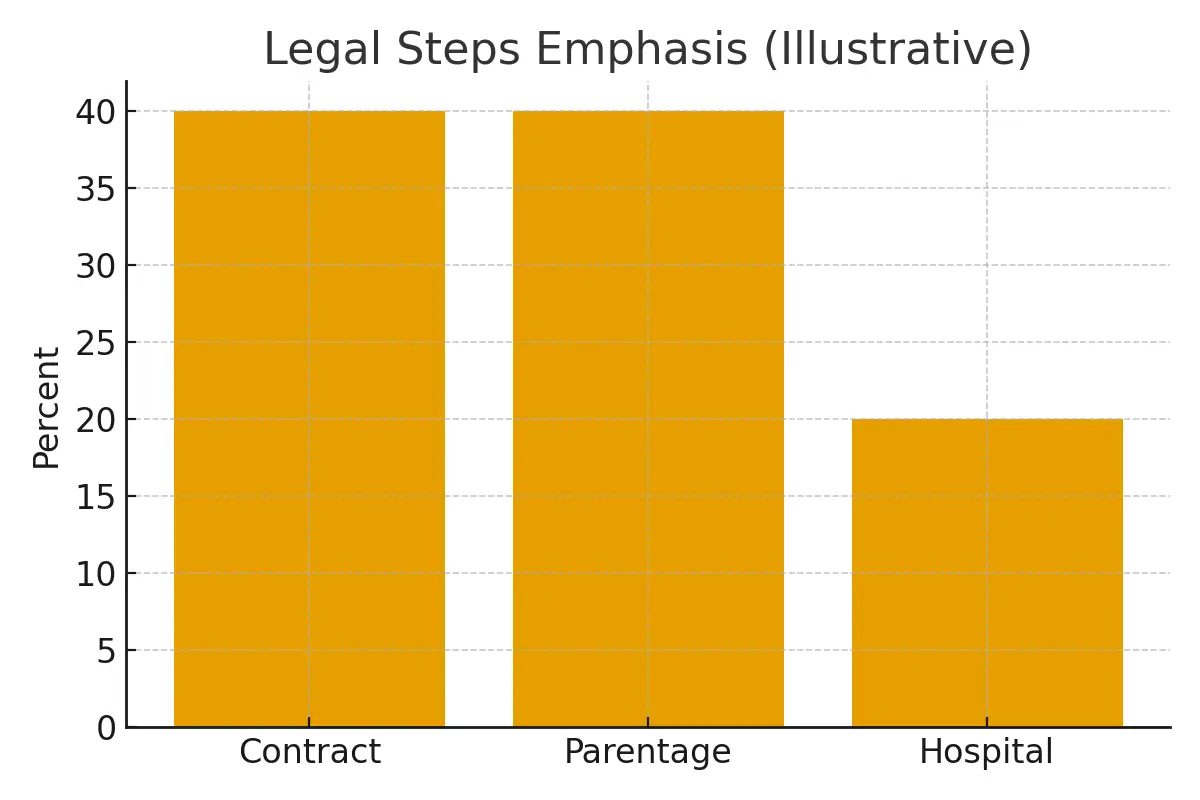
For LGBTQ+ individuals and couples, the journey toward parenthood is deeply personal and often shaped by unique medical, financial, and legal considerations. One of the most important decisions in this pathway is choosing the right fertility clinic. The clinic you select will directly affect outcomes, timelines, and budgets—so making an informed choice early on provides clarity and confidence for the road ahead.
What It Is
Choosing a clinic is more than just finding a place to perform medical procedures. For LGBTQ+ families, inclusivity and experience are key factors. An inclusive clinic ensures you feel respected and understood, while an experienced clinic knows how to coordinate complex care—linking medical, legal, and emotional support into one cohesive process. The earlier these factors are aligned, the smoother your journey will be.
Who It Helps
Not every clinic is the right fit for every family. Signs that a clinic is a good fit include:
- Respectful acknowledgment of same-sex partners or single parents.
- Clear policies on donor gametes, surrogacy, and second-parent adoption.
- Transparent communication around labs, testing, and treatment steps.
- Willingness to adapt protocols based on your history, imaging, and response.
If a clinic cannot provide clear answers to your questions—or if inclusivity feels like an afterthought—it may be a signal to consider a different path.
Step-by-Step
The fertility process has many moving parts. A well-structured clinic will guide you through these checkpoints:
- Initial consultation – review history, labs, and goals.
- Carrier screening and uterine evaluation – catch issues early to avoid setbacks.
- Protocol design and calendar alignment – ensures treatment timing supports both medical and legal needs.
- Embryo transfer planning – reduces variability and protects embryo quality.
- Legal coordination – synchronize parental rights, insurance, and hospital policies.
Each step builds on the last, minimizing stress while maximizing outcomes.
Pros & Cons
Pros of choosing an inclusive, experienced clinic:
- Higher confidence in both medical and legal aspects of family building.
- Reduced variability in lab results and treatment timelines.
- Coordinated support between medical staff, attorneys, and mental health professionals.
- Transparent budgeting and fewer financial surprises.
Cons or challenges to consider:
- Inclusive clinics may not be available in every location, requiring travel.
- Legal and logistical coordination can add time and cost.
- Insurance coverage may vary, creating budget pressure.
- Costs & Logistics
Financial planning is often one of the most stressful parts of family building. Key areas to review with your clinic include:
- Line-item costs: medication, lab work, donor gametes, and legal documentation.
- Insurance pre-authorization: confirm coverage before treatment begins.
- Cash-flow scenarios: plan for out-of-pocket expenses not covered by insurance.
- Escrow planning: important for donor and surrogacy pathways.
- International logistics (if applicable): factor in travel costs and time off work.
Using a simple cost tracker or checklist prevents last-minute stress and builds financial confidence.
What Improves Outcomes
Certain actions consistently improve results:
- Early carrier screening and uterine evaluation to prevent delays.
- Attention to lab quality indicators, which directly impact embryo success.
- Careful protocol timing and calendar alignment to reduce stress and budget variability.
- Legal documentation completed early, ensuring smooth recognition of both parents.
- Ongoing mental health support, which strengthens resilience during waiting periods and setbacks.
Case Study
A couple approached their journey unsure whether their local clinic could support their needs as a same-sex family. After initial consultations, they realized inclusivity was not a strong focus at that clinic. They switched to a clinic with proven experience in LGBTQ+ care. With clear communication between their medical and legal teams, they avoided unnecessary delays, managed their budget with transparent planning, and achieved their goal with greater peace of mind.
Mistakes to Avoid
- Waiting until late in the process to confirm insurance coverage.
- Overlooking mental health support as part of the care plan.
- Assuming all clinics handle LGBTQ+ cases equally.
- Starting treatment without clarity on donor or legal documentation requirements.
- Failing to align medical and legal timelines.
FAQs
Q. How do I know if a clinic is LGBTQ+ inclusive?
Ans : Look for inclusive language on their website, ask about their experience with same-sex couples or single parents, and request to speak with patients who’ve had similar journeys.
Q. What should I ask during my first consultation?
Ans : Ask about lab quality, carrier screening, insurance pre-authorization, donor policies, and how the clinic coordinates with legal teams.
Q. Is it more expensive to build a family as an LGBTQ+ couple?
Ans : Not necessarily, but costs may be higher if donor gametes, surrogacy, or additional legal steps are required. Transparent budgeting prevents financial surprises.
Q. Can international clinics be a good option?
Ans : Yes, but factor in travel costs, legal recognition, and time off work. Some families find international clinics more affordable, but logistics must be carefully planned.
Q. Why does mental health support matter?
Ans : Family building can be emotionally demanding. Professional support improves resilience, strengthens communication between partners, and helps maintain perspective during setbacks.
Call to Action
Free 15-min nurse consult
Upload labs for review
Personalized cost breakdown for your case
Related Links

Dr. Kulsoom Baloch
Dr. Kulsoom Baloch is a dedicated donor coordinator at Egg Donors, leveraging her extensive background in medicine and public health. She holds an MBBS from Ziauddin University, Pakistan, and an MPH from Hofstra University, New York. With three years of clinical experience at prominent hospitals in Karachi, Pakistan, Dr. Baloch has honed her skills in patient care and medical research.





